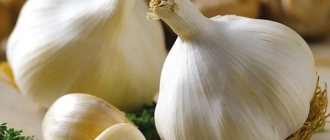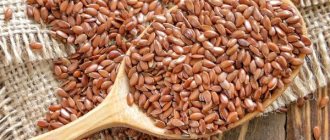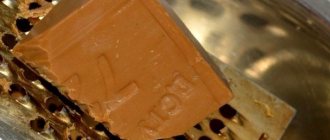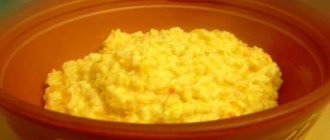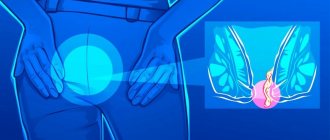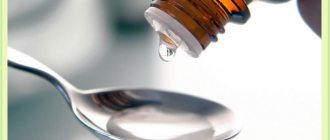With pancreatitis, many symptoms can be observed, one of which is disruption of the bowel movement. Constipation in pancreatitis is characteristic of the early stage of the disease, and can often be accompanied by increasing pain.
With the development of pancreatitis in the human body, all the ensuing pathological disorders in the digestive system begin to develop. Inflammatory processes in the cavity of the pancreas lead to the fact that the enzymatic components produced by it cease to enter the intestinal cavity, against the background of which the processes of digestion of food products are disrupted and characteristic symptomatic signs begin to develop, in the form of constipation, flatulence, nausea, vomiting, diarrhea and bloating.
Causes of constipation with pancreatitis
Pancreatic disease is accompanied by painful symptoms. Thus, developed inflammation of the mucous gland provokes a malfunction in the functionality of the entire digestive tract.
A change in bowel movements is an alarming call about changes in the activity of the gastrointestinal tract. Discrepancies in the functioning of the pancreas and the occurrence of proteolysis lead to irreparable discrepancies in its activity.
The development of characteristic signs of pancreatic disease is influenced by the severity of the disease. Severe constipation can lead to stopping the functioning of the intestines, which are characteristic of the acute course of the disease. The chronic stage of pancreatitis is accompanied by diarrhea, but most patients experience difficulty defecating. Constipation in chronic pancreatic necrosis is a rare manifestation.
Constipation in pancreatitis often develops due to medications that exhibit similar unwanted effects. A special diet introduced during illness can cause similar symptoms. Diet meals require a small amount of fat, which prevents rapid digestion and absorption of food.
Changes in the patient's stool are a characteristic symptom of pancreatic disease. This organ plays an important role in the digestion of the body. When the exocrine capacity of the gland decreases, one often has to deal with excessive accumulation of gases and the inability to empty the intestines.
Laxative teas for pancreatitis
Recently, doctors have begun to prescribe laxative teas to patients with pancreatitis, which help relieve constipation.
It is recommended to drink tea as a preventive measure for all disorders of the pancreas and for various disorders in the gastrointestinal tract.
You can buy Altai collection at the pharmacy. This tea has not only a laxative, but also a bactericidal, diuretic and choleretic spectrum of action.
Positive qualities of the Altai collection:
- due to the fact that the collection includes juniper, it helps to strengthen intestinal motility;
- celandine is also included in the composition; it is very useful for pancreatitis, as it helps relieve spasms;
- Altai collection additionally contains mustard plasters, which help relieve signs of inflammation and improve digestion.
If necessary, you can also buy a laxative herbal tea. The tea contains: anise seeds, licorice root, and nettle. All these components have a positive effect on the functioning of the gastrointestinal tract, so they will help eliminate an unpleasant problem.
Teas can consist of one plant, or contain several plant components.
Is it possible to make laxative tea at home? Yes, but before preparing the recipe below, it is recommended to consult a doctor.
To prepare you will need:
- flax and dill seeds;
- Herb tea;
- buckthorn bark.
Mix all ingredients in equal proportions and leave in 200 ml of boiling water. Strain before use.
The second folk recipe based on the sweet clover herb.
Also read on our website: Is there a temperature with pancreatitis?
Main ingredients:
- sweet clover;
- nettle;
- buckthorn.
Take all dry herbs in a ratio of 1:1:3. Then mix in a container and pour in a glass of boiling water. Once the product has infused well, you can drink it for constipation before bed in a dosage of 100 ml. If you have an allergic reaction to the recipes described above, you can prepare another simpler collection.
Dandelion is an assistant in the treatment of many diseases and all parts of the plant are used - flowers, roots and leaves.
To prepare, you will need dandelion grass (take all parts of the grass, leaves, roots and flowers). Wash the grass well and cut it. Infuse in 250 ml of boiling water for 5 minutes. Then cover the container and leave for another half day. Before use, strain well through sterile gauze. It is recommended to drink half a glass 3 times a day before the main meal.
If you do not have an allergic reaction to honey, then for constipation you can take 1 tablespoon of honey. Before use, honey must be diluted with one glass of water. Drink honey in the morning on an empty stomach.
As you can see, there are many remedies for constipation with an inflamed pancreas. The most important thing is to choose the right drug and folk recipe so as not to aggravate the course of the disease.
Don’t forget about proper nutrition, which helps improve the functioning of the gastrointestinal tract. If you have an inflamed pancreas, you need to eat 6 times a day.
For pancreatitis, treatment should be comprehensive, especially if there are pronounced symptoms. Therefore, it is recommended to take vitamin and mineral supplements during treatment to strengthen the immune system. You can buy vitamins at the pharmacy, or prepare fortified salads and drinks at home.
Factors causing constipation in pancreatitis
The formation of constipation during exacerbation of pancreatitis often occurs against the background of the following factors:
- incorrect and unbalanced diet;
- passive or sedentary lifestyle;
- presence of bad habits;
- development of concomitant diseases, such as chronic cholecystitis or diabetes mellitus;
- long period of taking medications.
The degree of load on the parenchymal gland directly depends on the choice of products for cooking. An unbalanced diet contributes to a significant deterioration of the general condition of the gland and the occurrence of an inflammatory process in its cavity.
Leading a sedentary and sedentary lifestyle provokes the development of atrophic processes in the cavity of the intestinal muscle fibers involved in the processes of food digestion. In a normal state, these muscles ensure the pushing of food into its next sections, up to the removal of already formed feces. With atrophy, the muscle fibers become so weakened that they cannot push formed feces into the last section of the intestine for further bowel movement.
Among bad habits, the most dangerous are: smoking, alcohol abuse, hunger strikes and overeating.
It is also worth noting that the development of pancreatic disease often occurs against the background of a progressive stage of cholecystitis or diabetes mellitus. Together, both pathologies contribute to dehydration and hardening of stool, which leads to the development of constipation.
And do not forget that when using certain groups of medications, it is necessary to pay attention to possible side effects. Likewise, when treating pancreatitis, before using any medications, you must first study the attached instructions and consult with your doctor about whether this or that remedy can be used to solve a particular health problem that has arisen.
Treatment
The methods that will be used in the treatment of constipation depend on the reasons that led to the development of this condition. Once the factor that provokes constipation in diseases such as cholecystitis or pancreatitis is identified, you can definitely find the right solution to eliminate the problem.
If diabetes mellitus is the culprit for defecation disturbances, you should try to reduce the level of glucose in the blood to the existing norm. Having achieved this, you can count on normalization of stool. If the cause of the problem is pathologies of the gallbladder, then it is also better to try to eliminate these disorders. Restoring the normal flow of bile will force the digestive organs to work correctly, as a result of which the intestinal muscles will also become toned.
Symptoms of constipation
Obstipation and pancreatitis are interrelated concepts, because with gland disease, the absence of stool is often observed. With symptoms of constipation, the patient will encounter the following manifestations:
- increased gas production, bloating and problems with passing gas;
- pain in the abdominal area;
- absolute absence of stool;
- poor appetite;
- mild jaundice;
- nausea.
If constipation torments the patient for a long period of time, excrement accumulates in the intestines and a putrefactive process develops, which leads to poisoning of the body. This provokes:
- headache;
- rashes;
- chronic fatigue.
Before going to the bathroom, the patient develops sudden pain in the abdominal area, and during bowel movements, due to stagnant feces and the formation of gases, cracks appear in the anus.
When constipation develops during the acute stage of pancreatitis, you should immediately consult a doctor, since accumulated excrement can provoke intussusception.
Problems with defecation occur with pancreatic disease and other gastrointestinal pathologies. Obstipations in pancreatitis and cholecystitis should not be left to chance, since complications will develop in the absence of therapy.
Is the condition dangerous and should you see a doctor?
The presence of constipation is characteristic of the acute stage of pancreatitis, often accompanied by accompanying symptoms: abdominal pain, severe bloating with difficulty passing gas, complications in the form of hemorrhoids, intoxication of the body, overstretching of the intestines with feces with the appearance of microcracks, streaks of blood in the stool.
There is a risk of progression of stomach disease. Self-medication in this situation is unacceptable. Only a qualified specialist (family doctor or gastroenterologist) can conduct the necessary examinations of the patient and help get rid of constipation due to pancreatitis and cholecystitis.
First trip to the doctor
Many patients have been in a situation where leaving the hospital after staying within the walls of the institution due to acute pancreatitis is associated with obvious difficulties in bowel movement. The body has already managed to recover, but the last bowel movement happened a long time ago. A laxative has been taken, but the medicine is not working. There is no movement in the intestines or release of gases.
Doctors in the hospital can help the patient - give painkillers and keep him on a diet. After being discharged, patients begin to enthusiastically consume fruits and vegetables, starting work in the body, because pain medications greatly dry out the internal organs. Constipation with pancreatitis is a common occurrence. An effective way is to take any available oil (vegetable, olive, flaxseed). If you have already taken the laxative, take a tablespoon of oil to lubricate the intestinal walls and stimulate peristalsis. Start taking one spoonful at a time, increasing the dose to three.
Often, patients suffering from forms of pancreatitis are faced with the presence of constipation.
The main causes of bowel dysfunction
With inflammation of the pancreas, diarrhea often occurs, which is associated with an insufficient amount of enzymes necessary for digestion. Despite this, constipation in pancreatitis is a characteristic symptom that appears at the initial stage of the disease.
There are several reasons that influence problems with the regular passage of feces:
- taking certain medications, one of the side effects of which is constipation (enzymes, antispasmodics);
- drinking alcohol in large quantities;
- following a diet for pancreatic disease, when food contains a small amount of fat that promotes its movement through the intestines;
- poor nutrition, consumption of fast food, fast food;
- constant overwork;
- frequent stressful situations;
- infectious diseases in the body that also affect digestion.
In addition, constipation with pancreatitis can be a sign of the development of secondary diabetes, since the destruction of pancreatic cells occurs, as a result of which insulin is not produced in the required quantity.
Constipation in acute pancreatitis
After hospitalization, the patient's intestines are irritated and inflamed, full of gases. A hot bath will help relieve constipation. Get into the water and massage your abdomen. Start from the navel, make circular movements, gradually moving clockwise to the lower abdomen. Press confidently. Massage the right side, just above the pelvic bone, below the ribs, imitating the natural movement of a bolus of food through the large intestine. Soon massage will help eliminate constipation.
Constipation in acute pancreatitis, or exacerbation of chronic pancreatic pathology, may be accompanied by symptoms such as:
- inability to have bowel movements;
- the occurrence of pain and bloating in the abdominal area;
- difficult passage of gases;
- mild jaundice of the skin;
- regular feeling of nausea;
- complete loss of appetite.
When taking a laxative, there are few other options for help.
First aid for the first symptoms of constipation are:
- taking large amounts of water or fiber (for example, flaxseed smoothie);
- oil (vegetable, olive, flaxseed);
- hot bath and abdominal massage.
Treatment methods for gastrointestinal problems with pancreatitis and cholecystitis
Treatment of constipation due to inflammation of the pancreas or disorders of the gallbladder is aimed at normalizing the diet while following a diet. For pancreatitis, drug correction of pathological changes in the body, herbal medicine with medicinal herbs, teas, and various methods of traditional medicine are used.
A gastroenterologist will help you choose the optimal treatment regimen for constipation and improve the functioning of your gastrointestinal tract.
Proper nutrition
In case of acute pancreatitis, you should adhere to certain food intake rules and exclude dishes that provoke an exacerbation of the symptoms of the disease:
- frequent small meals for constipation;
- preference for liquid dishes - soups, smoothies, pureed foods;
- drink enough fluids per day;
- to refuse from bad habits:
- do not overeat or starve during pancreatitis, regardless of the stage and form of the disease;
- Do not eat heavily before physical activity or before going to bed;
- For constipation, it is preferable to prepare foods by baking, boiling in water or steaming.
| Allowed dishes | Prohibited |
| Lean meat, give preference to poultry and fish. Consume no more than 3-4 times a week (food that is difficult to digest). | Canned fish and meat. Fatty meat, lard, smoked meats, sausages. |
| Vegetables: zucchini, broccoli, pumpkin, carrots, potatoes. | Legumes, cabbage, radishes, any pickles. |
| Non-acidic fruits, berries. | Citrus fruits, grapes. |
| Fermented milk products, steam omelettes. | Whole milk, fatty fermented milk products. |
| Yesterday's bread, preferably with bran or dark varieties. | Fresh pastries, sweets containing cocoa, white bread. |
| Dried fruit compotes. Natural juices from pumpkin, apples, carrots, pears. | Carbonated waters, sweet drinks, fresh citrus juices. |
| All types of cereals. | Exceptions to porridges are: millet and rice. |
By following dietary recommendations, you can get rid of constipation due to pancreatitis, improve the functioning of the entire digestive tract, and prevent the recurrence of gastrointestinal diseases.
Causes and ways to prevent constipation in chronic pancreatitis
And in the chronic form of the disease, the clinic described above is complemented by a sharp decrease in body weight and an increased level of nervousness. Moreover, blockage of formed feces leads to the beginning of their rotting in the intestinal cavity, which in turn contributes to the formation of an intoxication process, accompanied by headaches, various skin rashes and a constant feeling of fatigue.
Provoking factors contributing to the development of constipation in the chronic form of pancreatic pathology can be the following phenomena:
- regular use of medications with an analgesic effect;
- decrease in physical activity;
- hunger strikes and frequent malnutrition.
Frequent occurrence of constipation can provoke the development of complications such as hemorrhoids, which cause a lot of discomfort to patients. Therefore, it is so important to promptly eliminate all pathological disorders in the processes of the digestive tract.
Treatment of constipation
Treatment of constipation due to pancreatitis can be carried out using various methods and methods. Initially, what needs to be done is to seek help from your attending physician, who, having assessed the seriousness of the clinical picture, will be able to prescribe the most effective treatment for the problem that has arisen.
To accurately determine the possible causes of constipation, it is necessary to undergo special examinations of the stomach, as well as an ultrasound of the internal organs. If the problem lies in insufficient function and the development of inflammation in the pancreas, treatment consists of eliminating the underlying disease, the symptom of which is constipation.
How is therapy carried out?
Antibacterial drugs are used, the action of which is aimed at eliminating the inflammatory process. The type and duration of such therapy is determined on an individual basis.
Detoxifying drugs are used to relieve symptoms of intoxication. Treatment is symptomatic, enterosorbents are effective.
The restoration of normal intestinal microflora is facilitated by the intake of special prebiotics. An alternative is to use natural unsweetened yoghurts and kefir, but if these measures are not enough, medications are used.
Compensation for the work of the pancreas consists of taking digestive enzymes.
Mild local laxatives will help avoid intestinal obstruction. They cannot be used constantly, as the risk of addiction and decreased effectiveness, as well as inhibition of intestinal motility, increases.
Antispasmodics are used to relieve pain caused by smooth muscle spasms. This group of drugs also slows down normal intestinal motility, so use must be monitored.
Symptomatic treatment consists of taking antipyretic drugs, drugs that restore water-electrolyte balance and restorative drugs.
The technique aimed at eliminating constipation is:
- in nutritional adjustments;
- adequate fluid intake;
- in the use of folk remedies;
- as well as in carrying out drug treatment using laxatives.
Medications
When constipation occurs, many patients ask the question: “is it possible to take laxatives for pancreatitis and what drugs have the maximum effect?”
Undoubtedly, laxatives are an acceptable means of relieving problems with the bowel movement. There are two types of laxative spectrum drugs:
- Tablets with an irritating effect against constipation, in the form of Bisacodyl, Regulax, Guttalax. It is only important to remember that laxatives for pancreatitis can be taken no more than once a day. After taking a drug with a laxative effect, stool normalization may occur after 2-7 hours. It is also worth noting that prolonged use of these drugs contributes to the development of addiction and electrolyte imbalance.
- Medications with a gentle spectrum of action are prebiotics, in the form of Duphalac, prescribed in most cases to relieve constipation in a child, as well as Lactusan and Prelax.
Both acute and chronic constipation are quite successfully treated with the therapeutic effect of prebiotics, which quite successfully loosen hardened stool, promote the colonization of beneficial bacteria in the intestinal microflora, which destroy pathogenic microorganisms and remove waste and toxins.
An antispasmodic drug such as Papaverine in the form of tablets, injections for intravenous administration or in the form of suppositories is also used. In the absence of Papaverine, there is a unique alternative that can also help get rid of constipation - this is Dibazol in the form of an injection solution for intramuscular injection.
The drug in the form of Papazole is no less popular and effective.
Cleansing with enemas
Another method of relieving constipation is the use of enemas. Using its prepared solution, it significantly alleviates the patient’s condition and helps to quickly resolve problems with stool.
Compositions can be based on herbal preparations or plain water. Thanks to enemas, you can ease the act of defecation and stop constipation. The following useful recipes should be considered one of the most effective means for cleansing the intestines for constipation and pancreatitis.
- You need to take 1 juice. lemon and mix it well with 1 liter of boiled water.
- 3 tbsp. chamomile should be mixed with 500 ml of boiling water and let stand for 1 hour. The broth should be strained and diluted with 1 liter of plain water. It is better to boil it first and cool it. Only then can you use the enema product.
- Sage, mint and oregano, calendula are an excellent composition that is suitable for cleansing the body with an enema. You need to take 1 tbsp. each herb. Mix with 1 liter of water and strain after an hour.
- Starch mass is prepared from 1 tsp. starch, which should be filled with 500 ml of water. Subsequently, the composition should be dissolved and, if necessary, add another 300 ml of boiled water.
- Honey will be useful for cleansing. You need to take 2 tbsp. product and 500 ml of boiled water. This composition beneficially cleanses the intestines, gently affecting the organ.
These five recipes have been tested by many people in practice, but it is worth knowing one simple truth - no matter how effective enemas are, you should not use them on an ongoing basis. Not only with pancreatitis, but also in cases with a healthy person, they contribute to the leaching of fluid, killing beneficial microflora in the organ.
An enema for pancreatitis is performed only after the inflammatory process has stopped and if indicated. The following types of enemas are used to treat constipation:
- cleansing;
- laxative;
- siphon (used less often for constipation).
To perform a cleansing enema you need:
- Esmarch's ladle or rubber bulb;
- boiled water temperature 18-20 degrees;
- Vaseline to lubricate the tip.
To perform an enema, place an oilcloth under the patient. The patient's position should be either in a knee-elbow position or on the side with a bent leg.
After you have lubricated the tip with Vaseline or glycerin, you need to spread the patient’s buttocks and insert the tip 3-5 cm towards the navel, and then begin to insert the tip towards the sacrum. This way you will overcome the curve of the rectum. Movements should be smooth; if there is an obstacle, you cannot make sudden movements, only slow ones.
The volume of liquid for an adult should not exceed 1.5 liters. After the fluid has been administered, the patient should lie on his back for approximately 10-15 minutes.
To carry out a laxative enema, oil solutions are used; they are administered according to the same scheme at night. An oil enema takes effect after 8-9 hours.
Contraindications for an enema are all acute processes in the anal sphincter, rectum and intestines as a whole. The most common diseases that cause difficulties in administering an enema:
- haemorrhoids;
- anal fissures;
- proctitis and paraproctitis.
Douching for constipation caused by pancreatitis is ineffective.
With the help of sena
A long-standing method that provides treatment not only for the symptomatic manifestations of intestinal dysfunction, but also for chronic gastritis and cholecystitis, is the use of herbal remedies. Senna also helps improve immunity at the cellular level. Contraindications: children's age.
In the evening 1 tbsp. l. raw materials are poured with 200 ml of water. Boil the solution for 5 minutes and leave for 15-20 minutes. After straining the broth, you need to drink it in a dosage of 1/3 cup. The usual intake of senna is 2 hours after dinner.
There should be a normal bowel movement in the morning. The decoction can be used, if stored in the refrigerator, over the next 2-3 evenings. Before use, the liquid should be warmed to room temperature.
Drink plenty of fluids
An important condition in the treatment of constipation caused by problems in the gallbladder and pancreas is compliance with the drinking regime. Such patients need to double the amount of fluid consumed compared to existing standards. This will regulate the body's water balance and facilitate bowel movements. As liquids you can use plain water, compotes without added sugar, natural juice, herbal tea. In the morning, it is recommended to drink a glass of plain water on an empty stomach, which will benefit the stomach and intestines.
Painkiller
When using medicine to relieve pain, be sure to take a natural laxative, being careful not to experience constipation again. For example, beets, prunes, dried apricots, fermented milk products (yogurt, fermented baked milk).
Sport
As you know, a lack of physical activity has a bad effect not only on the condition of the pelvic organs; it is even more dangerous that such a lifestyle will sooner or later lead to atrophy of the muscles of the intestinal walls, which will result in chronic constipation. Therapeutic exercises, which, thanks to special exercises, will help restore muscle tone and help eliminate constipation, can help eliminate such changes in the condition of the intestines.
You can add morning exercises to the therapeutic exercises, as well as walk more, run as far as possible; a sport such as swimming helps to normalize bowel movements. By changing your lifestyle to a more active one, it is easy to normalize your digestion, which will very soon be completely restored with the complete elimination of problems such as constipation.
It is necessary to do exercises daily, walk a lot, do fitness or swimming.
Exercises should be performed at an average pace with smooth and slow movements, excluding abdominal tension. It is useful to run, do squats and jump rope.
Exercise every day at approximately the same time of day. The best time to warm up is in the morning before breakfast or a couple of hours after eating. Start with 3-5 sets of each exercise, gradually increasing the load to 7-10 sets.
Proper nutrition
The basis for getting rid of constipation will be following a diet (it is better to discuss this with your doctor). The main recommendations are to avoid heavy, fatty foods and foods that cause active gas formation. Preference is given to gentle cooking methods: boiling, baking or steaming. Limit the consumption of legumes and coarse fiber (if inflammation is severe) - it is better to eat fruits and vegetables peeled, replace white cabbage with cauliflower, Brussels sprouts or broccoli.
Among meat products, it is better to give preference to beef and chicken, giving up pork and sausages. Eat only white bread, not fresh. Women should remember that during the menstrual cycle, the body produces more triglycerides, which release additional fat. On critical days, you need to especially limit your diet in fatty foods, avoiding digestive disorders.
Dietary nutrition should be balanced with adherence to the diet with table No. 5.
It is necessary to exclude:
- bakery products made from premium flours, including crackers;
- confectionery sweetness;
- carbonated and alcohol-containing drinks;
- legumes;
- canned food, fatty meats and fish;
- grape;
- radish, radish and turnip.
The diet should consist of the following dishes:
- Vegetable soups.
- Viscous porridges on water (except rice and peas).
- Boiled vegetables.
- Compotes of berries and dried fruits.
- Lenten baking.
- Low fat fermented milk products.
- Boiled dietary meat.
- Steamed sea fish.
- Stewed apples and pumpkin.
- Vegetable juices (carrot, beetroot).
It is necessary to include a little vegetable oil in your food, which helps protect against constipation. It is best to use natural sunflower and olive oil. It is necessary to give up animal fats, reduce the consumption of salt and spices. From spices, you can add fresh herbs: parsley, basil, dill. To diversify the menu, you can stew and bake vegetables, but without seasonings and oil.
You can ease the digestion process by grinding food to a puree. After relieving acute pain, it is necessary to gradually introduce normal food into the diet. Often, problems with the pancreas lead to the development of various types of diabetes mellitus, in which adherence to dietary nutrition must become lifelong.
Folk remedies
Traditional medicine knows many ways to eliminate such pathologies through the use of medicinal herbs. To eliminate constipation, it is recommended to take decoctions of herbs such as:
- forest hay;
- buckthorn;
- horse sorrel;
- yarrow.
The decoction is prepared in a ratio of 1 tsp. crushed raw materials per 200 ml of water. It is recommended to drink one glass before bedtime, preparing a new healing liquid every day.
What to include in your diet:
- Cereal porridges, it is recommended to cook them in water.
- Dietary meat and fish.
- Steamed vegetables.
- Drink: compote, jelly.
Eliminate high-calorie foods, spicy and sour foods from your diet. If you have pancreatitis, you should also not eat smoked, fried, fatty cottage cheese, as well as those foods that cause increased gas formation.
Also read on our website: Pancreatitis - a disease of the pancreas
For constipation, the intestines can be cleansed with an enema. Every patient should understand that constipation occurs due to a specific reason. If the problem arose due to diabetes mellitus, then in this case diet and medications are prescribed that will help bring the sugar level back to normal. Therefore, doctors select the correct insulin therapy for such patients.
Constipation with pancreatitis, what to do? In addition to the measures described above, additional procedures must be carried out. A patient with pancreatitis periodically needs to visit sanatorium centers, engage in physical therapy, and can undergo a massage course. Such simple measures will help eliminate the unpleasant signs of pancreatitis, and will also significantly improve your general condition.
Recommendations from Elena Malysheva in the special issue “Live Healthy!” on how to overcome pacreatitis using the healing effects of natural remedies.
As for medications, this is, of course, the main stage of treatment. With drug treatment, doctors prescribe cleansing enemas and, if necessary, laxatives to patients. Another rule that a patient with pancreatitis should remember is to maintain a drinking regime. For constipation, you need to drink at least 2 liters of fluid per day.
If constipation occurs due to pancreatitis, then first doctors prescribe gentle medications that will help digest food.
Duphalac syrup for pancreatitis is used as a remedy that improves the condition of the gastrointestinal tract.
The drug Duphalac has proven itself well. It has a laxative effect and has a positive hypersmotic effect on the body. Due to the fact that the drug contains lactulose, Duphalac is able to stimulate the physiological act of peristalsis, and also improves the absorption of calcium salts.
FORLAX, by increasing the liquid content in chyme and softening its consistency, facilitates the act of defecation.
The second drug has also proven itself - Forlax. The main component of the drug binds to a water molecule in the intestines. This mechanism allows you to retain moisture and thereby increases the volume of feces formed.
Do not use the drug alone in the treatment of constipation in pancreatitis, there are contraindications.
Also read on our website: Diagnosis of pancreatitis, patient complaints, examination methods
Not to accept:
- In case of an allergic reaction to the composition of the medicine.
- For intestinal obstruction.
- For ulcerative colitis.
The dosage of Forlax for an adult is 2 sachets per day (taken in the morning and evening). If adverse reactions occur, immediately stop the medicine and consult a doctor. For constipation, you can use tablets with an irritating effect. For example: Regulax, Guttalax. Note that these drugs can be used for pancreatitis no more than 1 time per day. With prolonged use, serious side effects may occur and the electrolyte balance in the body may be disrupted.
Don't despair
Sometimes prescribing an unusual diet leads to depression and lack of appetite in patients. There is no need to despair; easy-to-digest food guarantees excellent health and prolongs your health for years. It is periodically allowed to eat heavy meals (for example, on holidays), denying the role of an outcast in the company of friends, not forgetting to take enzymes that facilitate the digestion of food.
After following these recommendations, constipation stops. Otherwise, you will have to see your doctor again. Remember that constipation develops due to diseases associated with pancreatitis. The list includes diseases of the central nervous system, hemorrhoids, or the culprit is taking medications containing excess calcium or aluminum.
Preventing constipation
Medicinal stomach teas and herbal infusions are good folk remedies for preventing constipation. The composition includes: mint, nettle, valerian, calamus root, buckthorn root. Eating solid fiber foods will help the body cleanse itself regularly. Eating kefir, fermented baked milk, low-fat cottage cheese and sour cream normalizes stool.
To prevent recurrence of constipation, it is necessary to follow the correct diet, not violate the prescribed diet and drink as much fluid as possible. Exercise therapy methods also play an equally important role in the prevention of constipation.
Proper nutrition
Meals should be balanced and fractional. In order to cure and prevent relapse of this pathology as quickly as possible, you need to eat at least 6 times a day with a break of 2-3 hours and reduced portions. Dishes prepared by frying must be completely excluded from your diet, as well as alcohol, spicy foods, smoked foods and fatty foods. Nutrition should include the maximum amount of healthy ingredients.
It is recommended to prepare as many vegetable salads as possible, especially from fresh vegetables.
Nutrition for constipation
If you are at risk of constipation caused by problems in the digestive system, you need to take care of your diet. Nutrition for pancreatitis and cholecystitis should remain balanced. It is important to be able to provide your body with enough nutrients and vitamins important for health. It is equally important to follow the correct principles of nutrition; food portions should be small, but meals should be taken at least seven times a day, and the breaks between meals should not exceed three hours.
- All fried, spicy, and sour foods should be excluded from eating. Dishes prepared by frying and alcohol are also prohibited. If possible, you should limit to a minimum the consumption of foods that can provoke the secretion of gastric juice in large quantities.
- It is recommended to consume a large amount of fresh vegetables and various dishes prepared on their basis.
By following the rules of a healthy diet and not eating foods that are contraindicated for inflammation of the pancreas and cholecystitis, you can improve the condition of the digestive system and improve intestinal function. The result will be excellent intestinal peristalsis, timely release of intestinal contents, cessation of rotting processes in the colon cavity and rejuvenation of the entire body.
Possible problems
Chronic constipation with pancreatitis can lead to unpleasant consequences. Emptying problems cause the following complications:
- Severe intoxication of the body. If there are problems with excretion of feces, harmful substances accumulate in the body. The patient begins to quickly become overtired and feel chronic fatigue. Poisons poison the blood, seeping through the intestines.
- Decreased liver function. This ailment is reflected almost immediately on the appearance. The patient's skin becomes dry, flabby, and has a jaundiced tint. Hair begins to fall out and nail plates weaken.
- Haemorrhoids. Constant problems with defecation contribute to the appearance of anal fissures, which leads to the development of hemorrhoids. This manifests itself in the form of bleeding after bowel movements.
- Constipation is a problem that should be addressed immediately after it appears. This is especially true for people with pancreatitis. Since this ailment can cause a number of consequences, which are difficult to get rid of in the future.
Despite the fact that constipation with pancreatitis occurs much less frequently than diarrhea, it causes no less discomfort. Following an appropriate diet, as well as using medications, will help avoid such problems in the future.
Sources: https://gastrotract.ru/bolezn/pankreatit/zapor-pri-pankreatite.html https://pankreatit03.ru/zapor.html https://lechimzapor.com/oslozhneniya/pri-pankreatite https://ogkt .ru/pankreatit/zapor-pri-pankreatite-i-holetsistite-kak-ot-nih-izbavitsya.html opodjeludochnoy.ru/lechenie_i_profilaktika/zapory-pri-pankreatite-chto-delat gastrit.club/podzheludochnaya-zheleza/pankreatit/chto -delat-kogda-poyavilsya-zapor-pri-pankreatite-i-holecistite https://proktoinfo.ru/zapory/zapor-pri-pankreatite zhktok.ru/bolezn/pankreatit/zapor-pri-pankreatite.html https:// vashzhkt.com/pancreatitis/zapor.html https://opankreatite.ru/simptomy/zapor-pri-pankreatite.html This material is exclusively subjective and is not a guide to action. Only a qualified specialist can determine an accurate diagnosis and prescribe treatment.
Last modified: 03/20/2020
Lifestyle adjustments
An unhealthy lifestyle can be one of the reasons for problems with bowel movements. They can be triggered by the following factors:
unhealthy diet;- abuse of alcohol or tobacco products;
- being in a constant state of stress;
- overwork;
- nervous shock;
- lack of physical activity;
- infectious diseases.
If pancreatitis is acute or chronic, constipation may appear as a result of intestinal dysfunction.
Dietary changes
One of the main places in the fight against difficult bowel movements is proper nutrition. It is recommended to eat food 5 times a day with breaks of 2-3 hours. Portions should be small so as not to overload the digestive system.
It is necessary to exclude from the diet foods that are difficult to digest or bind feces. Among them:
- vegetables and cereals containing large amounts of starch (potatoes, pumpkin, radish, rice, oats);
- legumes (beans, lentils, peas);
- grapes, bananas, pears;
- bakery products, except those made from wholemeal flour;
- milk porridge;
- jelly;
- radishes, onions, garlic, hot peppers;
- any foods high in sugar;
- spicy, fried, smoked or too fatty foods;
- canned meat, vegetables, fish, fruits;
- alcoholic drinks.
It is recommended to exclude the products listed above for the entire period of treatment of pancreatitis, as they create additional stress on the digestive system and negatively affect overall health.
A daily diet designed to combat difficult bowel movements may include the following products:
- soups cooked in low-fat vegetable, meat or fish broth;
- cereals cooked in water (buckwheat, millet, barley or pearl barley, bulgur, couscous);
- beets, cabbage of any kind, carrots, zucchini, eggplants, green beans, tomatoes, green peas, celery;
- greens (dill, parsley, arugula, spinach, any kind of lettuce);
- apples, peaches, apricots, nectarines, watermelon, melon, plums (citrus fruits, pineapples and kiwis should be introduced into the diet with caution, since due to their high acid content they can provoke inflammation of the mucous membrane of the stomach and intestines, which will worsen the condition of pancreatitis) ;
- fresh berries;
- fermented milk products with low fat content;
- eggs (but not fried);
- lean fish, meat, poultry (tuna, chum salmon, tilapia, halibut, veal, rabbit, turkey, chicken);
- dried fruits and compote made from them (dried apricots, prunes, dates);
- vegetable oil (olive, flaxseed);
- baked goods made from wholemeal flour, crackers without additives, crackers or biscuits;
- weak tea or decoction of rose hips and bran.
Using only approved foods, you can eat tasty and varied, so following a diet will not be a burden. It must be remembered that dishes are recommended to be baked, boiled or steamed. They should be served warm.
The diet should be designed so that the last meal ends 3-4 hours before bedtime. With this schedule, the digestive system will have the opportunity to rest at night, which will significantly improve the general condition of the body and speed up the healing process.
Rejection of bad habits
Doctors strongly advise against alcohol and smoking for patients with pancreatitis. This is due to the fact that during illness the immune system is weakened, all forces are aimed at fighting the disease, so the body is not able to fully cope with intoxication, which bad habits inevitably lead to.
Often it is the abuse of alcohol and tobacco products that leads to constipation in pancreatitis. This is due to the fact that, when harmful substances enter the body, they provoke inflammation of the mucous membrane of the intestines and stomach, and this leads to disruption of the entire digestive system. In addition, this process creates additional stress on the pancreas, which is vulnerable during illness, and this is fraught with the emergence of more serious problems, for example, the transition of pancreatitis to the acute stage.
Giving up cigarettes and alcohol during treatment will give the body the opportunity to fully fight the disease, and to consolidate the results, you should not return to bad habits even after the end of the therapeutic course.
Rest
Constipation with pancreatitis often occurs due to nervousness. It can be triggered either by ordinary worries due to the onset of the disease, or by getting into a stressful situation. Therefore, during treatment it is recommended to avoid nervous tension and rest as much as possible. If it is not possible to cope with psychological problems on your own, you should consult a specialist. This situation cannot be ignored, since regular constipation provokes a worsening of the condition with pancreatitis.
An integral part of a successful fight against the disease is also healthy sleep, on which you should spend at least 7–8 hours a day. If constipation during pancreatitis appears as one of the manifestations of the disease, the fight against this disease should only be done under the supervision of a doctor.

